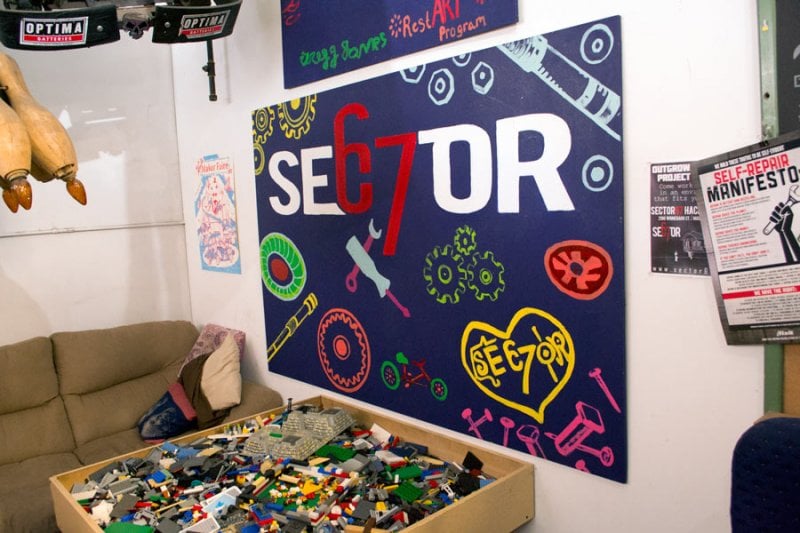After getting his Bachelor’s and Master’s Degrees, Chris Meyer wanted to do something different with his mechanical engineering expertise – he founded Sector 67, a maker space in Madison, WI.
Maker spaces have started to pop up all over the country, but Meyer and Sector 67 were early adopters to the movement, five years ago. Now, they’ve got a shop full of equipment, including a PCNC 1100. “I literally founded it when I was just out of college,” Meyer explains. “I rented this space and hoped people would show up to use it, and if they didn’t, I was going to have to go out and find a real job. Now, we’re up to about 100 members consistently.”
Meyer founded the maker space because he saw value in helping people understand tools and he gets a lot of enjoyment out of seeing members succeed. “I love being able to see people come in and have no idea what they want to do or what tool to use, but they’ve got an idea or they’ve got a dream and they just didn’t’ know what the first steps are. Once you get them past the first couple of steps… to see them on step 1000 and see them progressing beyond is really cool. That goes doubly so for the younger generation. You get kids today who’ve played video games and messed around with a smart phone, but have never really thought about their ability to make stuff. We can inspire a whole new generation of machinists and tinkerers and fabricators.”
Since Meyer went to school for mechanical engineering, he had an introduction to milling on a standard Bridgeport mill. “One of the biggest challenges to using one of these mills is changing out tools, keeping track of the index, and trying to make more complicated parts,” he explains.
“It’s really easy to make a bracket with two holes in it, but it’s really hard to go through and make a more complicated piece. One of the biggest things that our PCNC 1100 is going to help us with is being able to do more complicated pieces and easily share the functionality with the community that may or may not know how to use machine tools.”
He continues, “In a regular machine shop, you’ve got one operator that’s using the machine day in and day out; gets to know and love the machine, and really knows how to use it. The challenge that I have is teaching many people with many different backgrounds on how to use a mill. One of the biggest challenges of that is explaining to them the methods of fixturing, tool setups, and even feeds and speeds.
One of the nice things with the Tormach is the tooling system that’s provided with it (TTS), we’re able to set constant offsets and keep track of all those tools. So when an operator sits down to use the machine, they don’t have to measure and re-index everything because the last person who used it was doing something different.”
Sector 67 has some members that are old instrument makers, so they’ve been around machine tools for most of their careers. On the other end, there are members that have barely used a power drill, but understand computers and design.
Meyer explains that this is why he thinks the Tormach mills are so valuable in the maker space and educational settings:
“One of the really nice things about the Tormach is that it works for many of the folks we have here, whether they’re entry-level or a machinist with 20 years of experience.
What really gets me excited about Sector 67 is getting somebody who comes in and has never used a tool, a piece of equipment, or dreamed of affording some of this equipment – taking that person and helping them with their first project or getting them going on a tool and then watching them progress way past that is really motivating.”
Sector 67 has already established itself as the home for makers in Madison, but now, with a Tormach PCNC 1100, they hope to expand both their audience and their capabilities. Visit them at Sector67.org.


